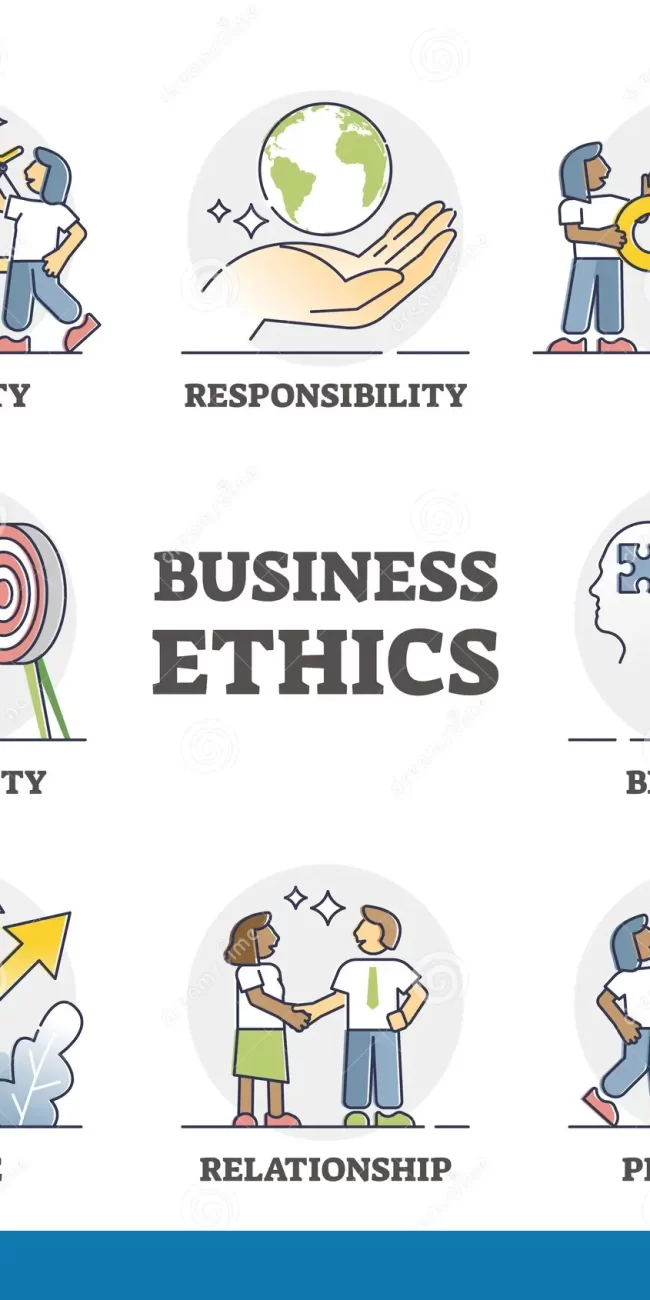
BUSINESS ETHICS
Esseen tyyppi: Blogiessee / 1 esseepistettä.
Business Ethics
Business ethics is the study and formulation of business policies based on a framework of values. This discipline ensures that companies operate with integrity, fairness, and social responsibility. By adhering to a strong ethical foundation, organizations can foster positive relationships with stakeholders, improve their reputation, and ultimately achieve long-term success. Understanding the importance of business ethics is essential for both corporations and individuals as they navigate the complexities of the modern business world.
Business ethics policies in organizations often take two forms. The first one defines an internal code of ethics for the organization’s employees in their business dealings with each other and with vendors and stakeholders. This approach ensures that all members of the organization adhere to a set of ethical standards that promote trust, fairness, and accountability. By establishing such a code, organizations can foster a positive work environment and maintain strong relationships with external partners. The second type of business ethics policies in organizations generally takes the form of a public-facing corporate social responsibility statement that defines the organization’s conduct with respect to the larger society. Such statements outline the company’s commitments to environmental sustainability, social equity, and responsible governance. By sharing these commitments with the public, organizations can build trust and credibility among their customers, investors, and the communities in which they operate. Additionally, these policies can serve as a framework for decision-making processes, ensuring that organizations consider the broader societal implications of their actions.
In today’s competitive business environment, adhering to ethical principles plays a crucial role in ensuring long-term success. There are many advantages to using business ethics, including fostering a positive company culture, building trust with stakeholders, and promoting sustainable practices. Implementing ethical guidelines not only benefits the organization, but it also positively impacts employees, customers, and the community at large. By prioritizing ethical conduct, businesses can cultivate a strong reputation and achieve lasting growth.
In discussing the disadvantages of business ethics, it is important to consider the potential drawbacks it may present for companies. One significant disadvantage is the limited ability to maximize profit, as ethical practices may require additional investments or limit certain revenue-generating activities. Moreover, implementing ethical practices can be time-consuming, as it involves training employees, establishing guidelines, and regularly monitoring adherence. Despite these challenges, the long-term benefits of business ethics often outweigh the initial difficulties, leading to a more sustainable and socially responsible business environment.
Furthermore, these practices may initially lead to increased costs and reduced competitiveness for businesses that prioritize ethics over short-term gains. Despite these challenges, the long-term benefits of business ethics often outweigh the initial difficulties, leading to a more sustainable and socially responsible business environment. In fact, companies that embrace ethical practices often find themselves enjoying enhanced reputation, customer loyalty, and increased long-term profitability, demonstrating that the positives of business ethics should not be overlooked.


